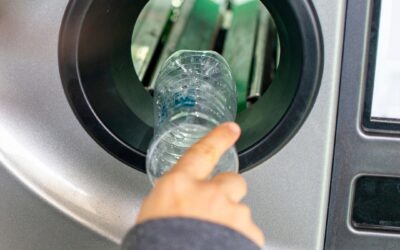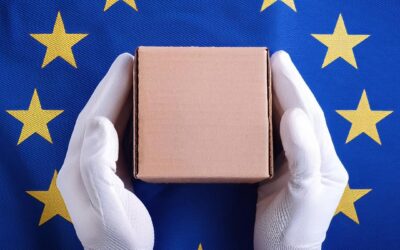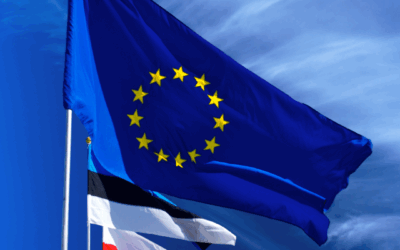EPR in Bulgaria: An overview of your obligations and requirements



Plastics have become an integral part of our daily lives – found in packaging, clothing, and electronics. When used and recycled correctly, they can even help conserve resources. This is precisely where Extended Producer Responsibility (EPR) comes in: Manufacturers and distributors are increasingly required to take responsibility for their packaging—from production to disposal. What is mandated by EU law also has very concrete implications for companies operating in Bulgaria.
The facts in Bulgaria: Between statistics and reality
On the one hand, there are clear legal requirements for EPR aligned with EU directives. On the other hand, official statistics on collection and recycling rates often present a picture that is questionable in practice. While packaging waste collection in Bulgarian cities works relatively well, rural areas lag significantly behind. In many regions, plastic and metal packaging still ends up in residual waste, making clean separation and recycling difficult. A deposit return system for single-use bottles and cans has yet to be introduced, resulting in low return rates.
Official Figures vs. Local Reality
Bulgarian recycling figures appear promising at first glance: According to Eurostat, around 60% of plastic packaging was recycled in 2019, placing Bulgaria third in the EU after Lithuania and the Czech Republic.
However, NGOs such as Zero Waste Europe and Za Zemiata have raised concerns: Their investigations reveal that these figures may be significantly inflated. Some municipalities report recycling rates as low as 10%, with some even at 0%. This indicates incomplete data collection and a lack of oversight.
How does plastic recycling work in Bulgaria?
A large portion of plastics placed on the market is either mechanically recycled or sent for energy recovery through incineration. Both methods are part of the current waste management system, which aims for efficient resource utilization. Many types of plastic still lack suitable recycling streams, making energy recovery a necessary interim solution. It is therefore crucial for companies to take their EPR obligations seriously. Proper licensing and reporting of packaging volumes actively contribute to a functional circular economy.
There are six main types of plastic, including polyethylene (PE), polypropylene (PP), and polystyrene (PS). Not all plastics are equally recyclable. Multilayer packaging and dark plastics are considered difficult or even impossible to recycle.
The stages of recycling in Bulgaria:
- Separate collection: Plastic is collected in yellow bins.
- Sorting: Specialized facilities sort plastics by type (e.g., PET, PE, PP).
- Cleaning: Contaminated packaging must be washed; cleaner input means higher-quality recyclate.
- Processing: Cleaned plastic is shredded, melted down, and processed into granulate.
- Reuse: New products are created—such as pipes, packaging, textiles, or construction materials.
What are the EPR obligations in Bulgaria?
Companies placing packaging on the Bulgarian market are legally required to register with the competent authority (ExEA) and cover the costs of waste management and recycling. These responsibilities fall under EPR, which aims to make the entire lifecycle of packaging more sustainable. In addition to financial contributions, certain types of packaging must also meet labeling requirements.
Tasks such as organizing collection, submitting reports, and conducting public awareness campaigns can be delegated to an approved compliance scheme (Producer Responsibility Organization, PRO). In most cases, producers fulfill their obligations by reporting packaging volumes and covering corresponding disposal costs.
Regardless, companies remain responsible for designing environmentally friendly packaging and this includes reducing hazardous substances, providing required declarations of conformity, and ensuring clear disposal instructions are printed on the packaging.
Labeling requirements for packaging in Bulgaria
On January 8, 2021, Bulgaria amended its Packaging Ordinance to make it easier for consumers to sort packaging waste.
This is especially relevant for foreign sellers shipping directly to end customers in Bulgaria. Since 2022, packaging must be labeled with the Mobius loop and an alphanumeric code according to the material fraction. The use of the Tidyman symbol is optional. All labels must be printed directly on the packaging.
New measures against single-use plastics in Bulgaria
Waste Management Act (WMA)
The Bulgarian regulation implementing the EU Single-Use Plastics Directive (2019/904) aims to reduce the environmental impact of certain plastic products. It introduces a range of measures targeting manufacturers, importers, and retailers. Some rules are already in effect, while others will be phased in over the coming years.
A key element is the ban on specific single-use products such as cotton buds, cutlery, plates, straws, very thin plastic bags (<25 microns), and oxo-degradable plastics. Additionally, new labeling requirements apply: Producers, importers, and retailers must clearly and permanently mark certain hygiene and tobacco products with disposal instructions and warnings about environmental harm.
Since January 1, 2023, food producers and retailers are required to implement measures to reduce consumption, such as signs with environmental information and prices for single-use plastics. These products are also subject to surcharges, which will gradually increase.
As of July 3, 2024, another measure has taken effect: plastic beverage bottles up to three liters may only be sold if the caps are attached to the container—an initiative to reduce litter in nature.
Companies placing certain plastic products such as food containers (up to 3L) or lightweight plastic bags (<50 microns) on the market must register with the public register of the environmental agency (ExEA). EPR-related obligations also apply, including educational campaigns, fee payments, and consumer guidance measures.
Plastic tax in Bulgaria from 2025
In 2025, Bulgaria will introduce a product fee on plastic packaging and certain single-use plastics. The legal basis is the Ordinance on Product Fees and the Ordinance on Reducing the Environmental Impact of Certain Plastic Products. Companies placing such items on the Bulgarian market will be required to pay a fee of 2.33 BGN per kilogram (approx. €1.20). An additional fee of 0.25 BGN per kilogram is planned for single-use plastics such as cups, containers, plastic bags, wet wipes, or tobacco filters.
Not all plastic products are subject to the tax. Certain plastic bags are exempt, including:
- Very thin bags without handles
- Biodegradable carrier bags compliant with EN 13432
- Bags with specific environmental labels
Nevertheless, even these bags—except for the very thin, handleless ones—must be sold for a fee.
All companies placing affected products on the market without fulfilling the required recycling targets must pay the tax. PROs that fail to meet their obligations or report inaccurate data are also liable. In addition, producers of single-use plastics are subject to EPR obligations.
In terms of reporting duties, companies must submit monthly packaging volume reports by the 15th of the following month. For single-use plastics, an annual report is also required.
Challenges and opportunities in Bulgarian recycling
Sorting and recycling are closely linked in Bulgaria and form a core pillar of the circular economy. While urban regions already use modern sorting and recycling systems, rural areas still face significant challenges. Precise separation of material streams such as plastics, metals, and compositesis key to achieving high-quality recycled materials.
Glass and PET bottle recycling is functioning reliably. However, the infrastructure for other plastic types is still under development in many areas. Mechanical recycling, in particular, struggles with complex materials. Therefore, investments in advanced technologies, effective return systems, and rigorous implementation of EPR are essential.
Opportunities for business and the environment
Plastic recycling offers both ecological and economic benefits: it reduces CO₂ emissions, conserves fossil resources, and creates jobs. Companies that fulfill their EPR obligations actively contribute to resource conservation and benefit from more efficient processes and a stronger brand image.
Overcoming structural challenges
Nevertheless, there are structural issues: A working deposit system is still lacking, and many Producer Responsibility Organizations operate without independent oversight. Transparency in recycling rates and consistent enforcement of legal requirements remain areas for improvement. In many regions, basic infrastructure like recycling centers which play a vital role in municipal waste sorting is still missing.
Beyond technical infrastructure, a societal shift is needed: education and awareness, especially in schools and communities, are critical success factors. Only through coordinated action at all levels can Bulgaria realize the full potential of a true circular economy.
Conclusion: Greater responsibility for all of us
Plastic recycling in Bulgaria is not a lost cause, but it is a complex system with room for improvement. Achieving stable recycling rates will require investment in modern sorting and recycling technology, as well as the implementation of a functioning deposit return system.
EPR is a key instrument: Companies must register, label packaging, and take responsibility for proper collection, sorting, disposal, and recycling of their products and packaging. Only if all stakeholders play their part can the system succeed in the long term.
Clear legal requirements, effective enforcement, and greater awareness among citizens and companies are equally crucial. After all, recycling doesn’t begin in the facility – it starts at home, with informed decisions and responsible action.

LIZENZERO.EU makes packaging compliance in Europe very easy.
Do you ship your products to different countries in the EU? Many different legal requirements and obligations can make the whole thing quite complicated – but don’t worry, we’ll do it for you. How do we do it? With our licensing service, we take over all obligations for you by power of attorney. Sounds good? We’ll be happy to advise you.
For shipping to Germany, you can easily fulfill your packaging obligations yourself via Lizenzero.de.
Deposit systems in the EU explained
Deposit systems show that simple solutions help to keep packaging in circulation and increase recycling rates. However, there are major differences within the EU: while countries such as Germany, Sweden and Finland have been using deposits for years and achieving high return rates, other Member States are still in the early stages.
Mandatory from 2026: The EU Authorised Representative for Packaging explained
Europe is an attractive but regulatory complex market. One of the more complex requirements is the appointment of an authorised representative (AR). The AR is the central interface between the manufacturer and the European market surveillance authorities. The authorised representative plays an important role in product safety and extended producer responsibility (EPR) and is therefore becoming increasingly important to ensure access to the market.
Authorised Representatives in Europe: Which ones are there and what do you need them for?
Europe is an attractive but regulatory complex market. One of the more complex requirements is the appointment of an authorised representative (AR). The AR is the central interface between the manufacturer and the European market surveillance authorities. The authorised representative plays an important role in product safety and extended producer responsibility (EPR) and is therefore becoming increasingly important to ensure access to the market.




